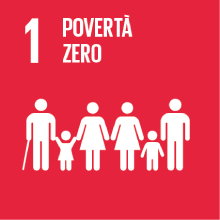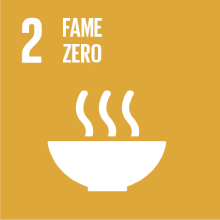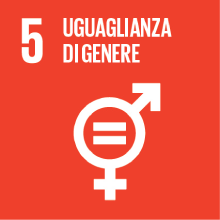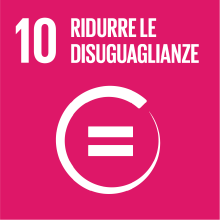CULTURAL POLICIES
- Anno accademico
- 2021/2022 Programmi anni precedenti
- Titolo corso in inglese
- CULTURAL POLICIES
- Codice insegnamento
- EM3A17 (AF:340040 AR:189332)
- Lingua di insegnamento
- Inglese
- Modalità
- In presenza
- Crediti formativi universitari
- 6
- Livello laurea
- Laurea magistrale (DM270)
- Settore scientifico disciplinare
- SECS-P/07
- Periodo
- 3° Periodo
- Anno corso
- 2
- Spazio Moodle
- Link allo spazio del corso
Inquadramento dell'insegnamento nel percorso del corso di studio
Risultati di apprendimento attesi
Upon successful completion of the course, students should be able to:
• Gain understanding of the key concepts and terminology, which inform thinking about cultural policy, drawn from different disciplines.
• Gain understanding of the key debates, issues, and events (historical and contemporary) in the formation of, and responses to, national and international cultural policy initiatives.
• Reflect upon the role of state in shaping the cultural formation of society.
• Learn how to locate and critique cultural policy, focusing upon policy debates and challenges that contribute to or impede cultural sustainability
• Identify and analyse cultural policies expressed both explicitly and implicitly through legislation, guidelines, initiatives, and other actions as well as community responses to these policies.
• Examine intersections between cultural policies at international, national, regional, and local official public policy levels and local cultural processes and community concerns in the student’s own community and elsewhere.
• Develop the ability to critically analyse cultural policies designed to generate economic development, and to critically consider the effects of economic development policies and tourism initiatives on local cultural sustainability.
• Understand how issues and cultural policy trends develop locally, nationally, and globally and how policies are being created around it.
• Identify and critique knowledge which acquires, dominating authorities, ideologies and fashions in management and cultural studies.
Prerequisiti
Contenuti
Cultural Policy: Definitions and Theoretical Approaches
Explicit and implicit cultural policies
1. The Culture of Cultural Policy
Defining culture
High, low and everything in-between
The cultural industries debate
The creative industries
The creative or cultural economy?
Consuming high and low
The study of cultural policy
2. The Policy of Cultural Policy
Cultural policymakers
Who made local cultural strategies?
Cultural policy as object
Government and the uses of culture
Doing cultural policy studies
Cultural policy as discourse
Cultural policy as text
Cultural policy as process
Cultural policy as practice
New moves in policy research
3. Urban Cultural Policy
Cultural policies in the city
Flagship cultural building and regeneration
Cultural quarters and clusters
City competitions
The creative city
The city as an attraction
Major events and neoliberal rhetorics
Urban and social sustainability
Urban policy coalitions
Culture and conflict in the city
4. National Cultural Policy
Nations on display
Imagined communities, invented traditions, banal nationalisms
National character
Policy and politics of culture
The involvement of the government in the management of cultural affairs
The control, protection and promotion of culture
Typologies and models of national cultural policy
Subnational cultural policy
Supranational cultural policy
5. International Cultural Policy
The complex relationship between culture and globalisation.
Cultural trade
Cultural diversity
Culture and development
Cultural diplomacy and exchange
The Covid-19 crisis: a comparative analysis of early policy measures
Testi di riferimento
Mulcahy K., (2006), Cultural Policy: Definitions and Theoretical Approaches, The Journal of Arts Management, Law, and Society
Ahearne J., (2009), Cultural policy explicit and implicit: a distinction and some uses, International Journal of Cultural Policy, 15:2, 141-153
Bell, D. & Oakley, K., Cultural Policy, 2015 Routledge
Betzler, D., Loots, E., Prokupek M., Marques L. & Grafenauer P.(2021) COVID-19 and the arts and cultural sectors: investigating countries’ contextual factors and early policy measures, International Journal of Cultural Policy, 27:6, 796-814,
Lee, H., Ling-Fung Chau, K. & Terui, T.,(2021): The Covid-19 crisis and ‘critical juncture’ in cultural policy: a comparative analysis of cultural policy responses in South Korea, Japan and China, International Journal of Cultural Policy,
Ganga, R., Wise, N. & Perìc, M. (2021): Exploring implicit and explicit cultural policy dimensions through major-event and neoliberal rhetoric, City, Culture and Society
Modalità di verifica dell'apprendimento
Students will be asked to keep a journal of their learning experience by writing a daily post (max 200/300 words) on the Moodle forum reflecting on the topics discussed in class. The daily journal should be an individual reflection on the topics presented by the professor in class that same day and/or the chapter/articles assigned for readings. Students can also join the conversation by reacting to postings submitted by their colleagues. Students can write what they think they have learned from each day’s lesson, discuss how different themes are connected, or how their daily learning could be of relevance for the development of their academic interest or professional career. Overall, the posts should demonstrate the ability to connect the topics discussed in class with actual and contemporary issues, episodes, initiatives, controversies taken from debates occurring in mainstream media and framing them within conceptual and political perspectives.
Daily pitching (20% of the grade)
At the beginning of each class (starting on Week 1, day 3) one or more students will be assigned to pitch to the class for 10 minutes about the discussion that has been developing in the forum in the previous day. The presenter(s) is expected to summarize the collective discussion, identify common issues, and key points, and leave the class with one question for the professor and the rest of the students to respond to. The presentation should demonstrate the ability to critically interpret the different views, construct and propose a coherent argument and identify gaps and open issues that require additional reflection and may lead to further discussion. In other words, the presenter(s) is supposed to assume the role of the lecturer for the initial part of the class and offer an assessment of the extension, clarity, depth, and creativity of the discussion that has been going on in the forum. The presenter(s) are expected to use slides or other forms of visualization of their presentation.
Research Paper (40% of the grade)
Students are required to write a research paper (3500-4000 words) on a cultural policy topic of their choice drawing from theoretical aspects of cultural policy, case studies encountered during lectures, insights from additional reading, engagement in contemporary discussion in the media or from personal experience. The research paper will have to look like an expanded essay that presents the student’s own thinking and interpretation backed up by the ideas of scholars and experts in the field. The research paper will have to feature a review of the literature that requires to research information and then summarize and paraphrasing. It will then add the step of synthesizing the information and developing the student’s own insight or argument on the topic or issue that the information presents. In the research paper, the student is expected to address one central question and develop a thesis, i.e. the answer to the question thus anticipating the type of intellectual exercise that is required for the master thesis. The research paper must be handed in by the end of week 6 of the course.
Research paper presentation (10% of the grade)
The main findings of the research paper (topic, research question, development of the thesis, answer to the research question) will be presented by each student during the last day of class.
Modalità di esame
Metodi didattici
Altre informazioni
Durrer, V., Miller, T. & O'Brien D., (eds.), The Routledge Handbook of Global Cultural Policy, 2019, Routledge
MacDowall, L., Badham, M., Blomkamp, E., & Dunphy, K. (eds.) Making Culture Count. The Politics of Cultural Measurement 2015 Palgrave MacMillan
Obiettivi Agenda 2030 per lo sviluppo sostenibile
Questo insegnamento tratta argomenti connessi alla macroarea "Povertà e disuguaglianze" e concorre alla realizzazione dei relativi obiettivi ONU dell'Agenda 2030 per lo Sviluppo Sostenibile





